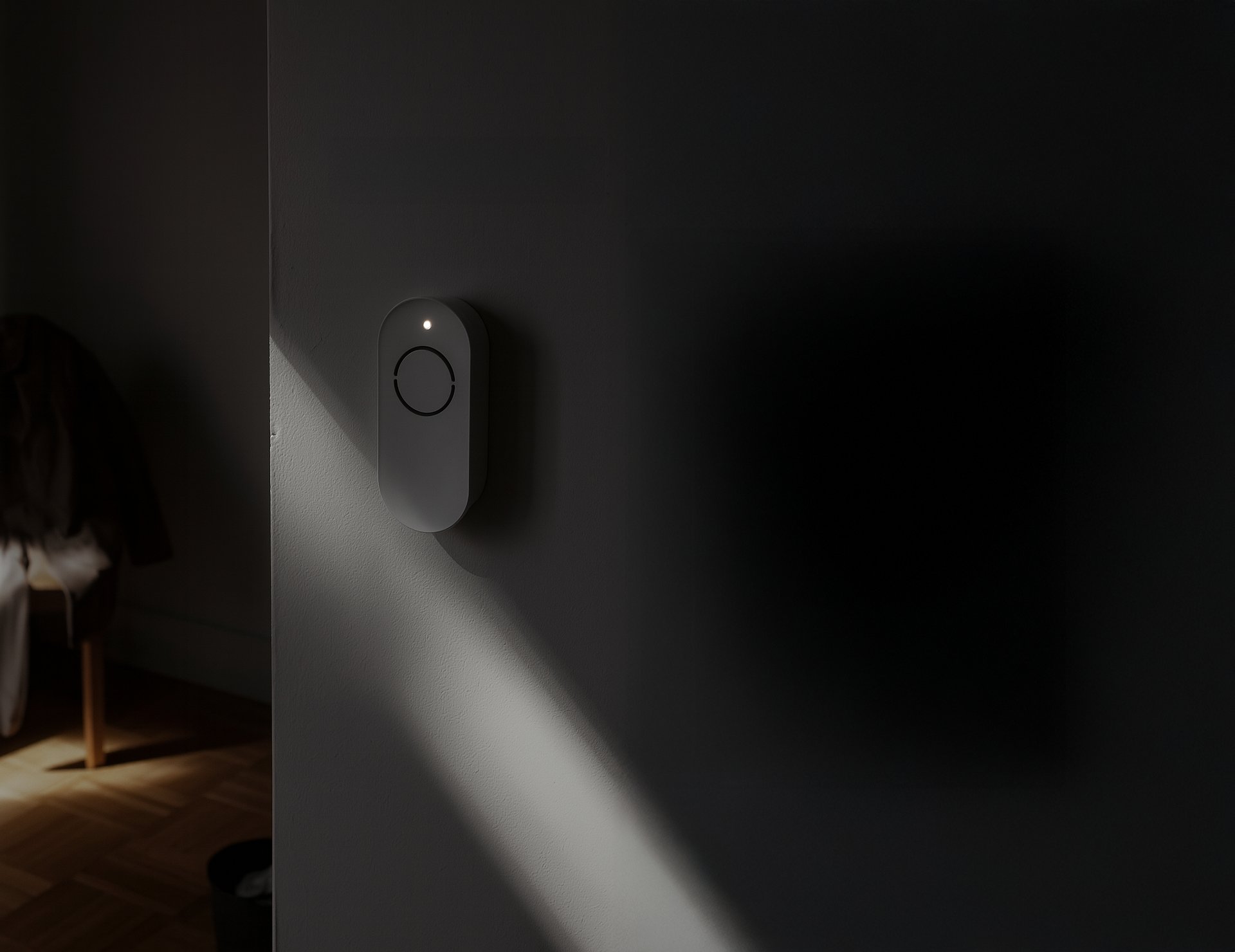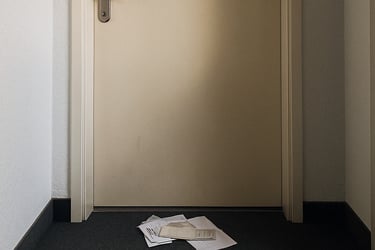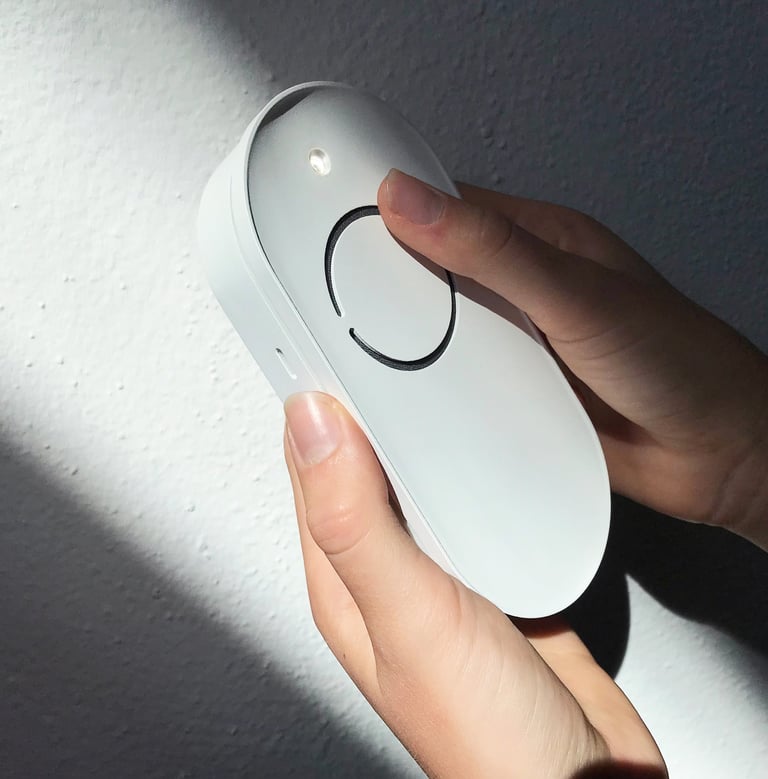
A silent home device
that senses
unnoticed deaths.
“It took 1–2 months before anyone in our building realized our neighbor had died. He had hanged himself. We thought he was away. The flies eventually revealed the truth — and no one was ready for it."
IN MEMORIAM was designed because no one deserves to leave this life unseen. In growing cities, many people live alone with limited contact. Accidents, suicides, overdose, or sudden illness can happen behind closed doors. In Memoriam is a discreet smell-based sensor that enables early community care in cases of death in solitude.
wall-mounted smell sensors integrate seamlessly into any environment / room





In Berlin alone, more than 2,000 people die undiscovered each year. The age group is completely mixed.*
*this estimation was given by the State Institute for Forensic
and Social Medicine Berlin / 2022
Is it?
We hear this often.
Wouldn’t it be better to prevent these situations in the first place? With smartwatches, apps, cameras, or tracking systems? Yes, prevention is important. But these technologies have existed for decades and still, people die unnoticed in their homes.
Because many don’t wear a smartwatch. Or use an app. Or want to be tracked.
Ask yourself honestly:
Would you use an app everyday to signal, that you are still alive?
IN MEMORIAM doesn’t aim to replace preventive care or policing.
It offers something else: a quiet invitation to notice each other again. To take shared responsibility, instead of outsourcing it entirely. Because dignity doesn’t end with life.
And care doesn’t start with a smartwatch.
And if this webpage alone made you care a bit more about the community around you - that is already enough!
This is dystopian!


A Growing Urban Challenge
In our increasingly connected yet isolated world, undetected deaths in urban apartments have become a silent crisis affecting thousands of families each year.
Urban Isolation
Not just the elderly.
Social disconnection means many people live alone with limited regular contact.
Up to 50% of those who die in solitude are under 40 years old. Suicide, accidents, drug abuse — there are many causes of death in isolation.
Without regular check-ins, deaths can go unnoticed for days or even weeks — often leaving it to loved ones to make the devastating discovery, and causing lasting trauma for families and friends.
Emotional Impact
Response Complications
The longer a body remains undiscovered, the harder it becomes to determine what happened — putting added pressure on emergency services, investigators, and social workers. Additionally, weeks of sanitation, renovation, and temporary loss of housing often follow.






what it does not do
no cameras or visual monitoring
no audio recording or listening
no motion tracking or surveillance
Only chemical analysis with no personal data collection or transmission: Advanced chemical sensors detect specific compounds released during human decomposition, providing reliable indication while filtering out false positives.




How
In MEMORIAM Works
how humans dissolve into scent after death
*Source_A. Williams / Selection from hundreds of fragrances
timeline
Fresh corpse
About 2 hours after death, rigor mortis begins / the body still barely smells
Formation of gases
The body bloats because gases are produced by the activity of bacteria in the soft tissues
Start of decomposition
Penetrating odor because the gases now
escape completely to the outside
Progressed decomposition
The strong odor of decomposition decreases again, but is still clearly perceptible
Skeletonization
As the bones lie longer, the smell of the body
disappears completely
time window/ detection
by IN MEMORIAM
Hexanal_smell of freshly mown grass
detecting volatile organic compounds
Dimethyldisulfide_
smell of cooked cabbage
Indole_fecal like odor
Butanol_wine-like odor
Tuluol_solvent / aromatic odour
Trimethylamine_
smell of old fish
Tell us what matters to you
5 frequently asked questions
How does in memoriam protect privacy?
In Memoriam uses only chemical sensors - no cameras, microphones, or motion detectors. It detects specific decomposition gases that indicate biological processes. No personal data is collected or transmitted.
What about false positives?
The device is calibrated to detect specific gas concentrations and patterns unique to human decomposition. It filters out common household odors and requires sustained detection over time before alerting.
Who receives the alerts?
In Memoriam doesn’t notify authorities directly. Instead, it activates a discreet signal — like a shared entrance lamp — to alert a trusted contact. This might be a neighbor, building manager, caregiver, or simply someone the resident assigns. The system creates a quiet prompt for care. Even where traditional community is missing.
For some, that signal reaches an entire house; for others, it's a single friend who checks in. During early research, people strongly rejected apps and automated messages — they felt too invasive, too easy to ignore, or too emotionally overwhelming.
How is it installed and maintained?
In Memoriam mounts like a standard smoke detector and requires minimal maintenance. Battery life is 2+ years, with low-battery alerts. Professional installation support is available.
What´s the response protocol?
The device enables faster welfare checks and emergency response. It doesn't replace human judgment but provides early indication.


cerberus innovations GbR
together, we foster dignity and care for all.
© 2025 cerberus innovations GbR. All rights reserved.
data protection
Questions about implementation, partnerships, or press inquiries?
We'd love to hear from you.
mail adress: info.to.inmemoriam@gmail.com
